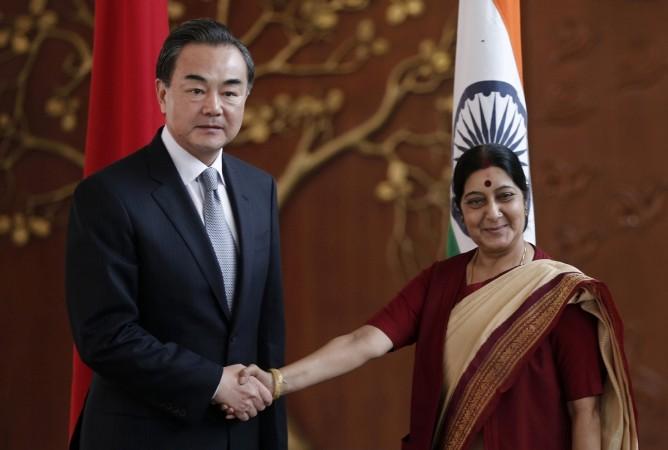
Indian Minister of External Affairs Sushma Swaraj met her Chienese counterpart Wang Yi in Moscow on Sunday and reportedly discussed the issue of China blocking India's attempt at the United Nations to list Jaish-e-Mohammed chief Masood Azhar as a terrorist.
The two ministers met on the sidelines of the trilateral meeting of foreign ministers of Russia, China and India. China has reportedly agreed to discuss the matter further.
"EAM raised the issue of listing of Masood Azhar in the UN 1267 Committee and emphasized that as common victims of terrorism, China and India should cooperate in combating this challenge. It was agreed that the two sides would remain in touch on this matter," NDTV reported, citing a statement by the ministry.
China used its veto power just ahead of the deadline last month, blocking India's request to ban Azhar, believed to be the mastermind of Jan. 2 attack on an Indian Air Force base in Pathankot, Punjab, Press Trust of India reported.
The United States, Britain and France had all agreed to list Azhar as a terrorist, but China requested the United Nations Sanctions Committee not to declare him a terrorist. Defending its decision later, Chinese foreign minister said: "China always deals with the listing of 1267 committee based on facts and pursuant to UN Security Council resolutions and relevant rules in a fair manner."
Following which, India condemned the "hidden veto." India had tried to ban Azhar after the 2008 Mumbai attacks, but China had blocked the request even then.
At Monday's meeting, Swaraj and Wang also discussed a number of other bilateral issues. Wang said that both India and China should work together for the development of Asia and the world.
"We are meeting after a long gap and I think we should meet quite frequently. Because things are moving very fast in the world and if we meet frequently, we will be able to deliberate on those," PTI quoted Swaraj as saying.
"China and India are two major countries and two big neighbours. It is important for us to maintain very close cooperation. We are two developing countries and emerging markets and we both face the challenging task of promoting economic development and realize national rejuvenation," Wang said.
"We are strategic partners and as the world's economic and political centre is shifting towards Asia-Pacific. It is all the more important for both the countries to join hands because our cooperation will have far reaching and positive implications to the region and the world at large "So we need to stay focus on growing our relationship, align our strategies and step up our partnership so that we can jointly contribute to Asia and world's development," he added.














